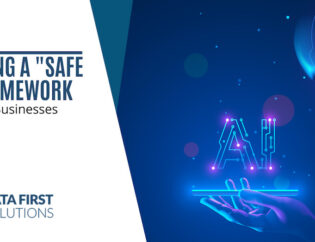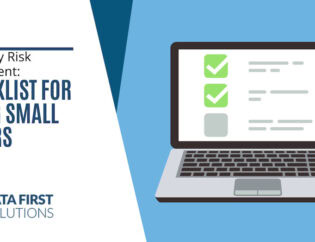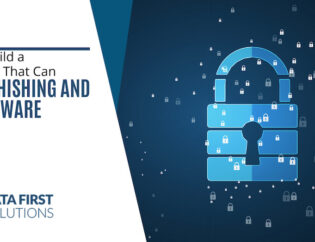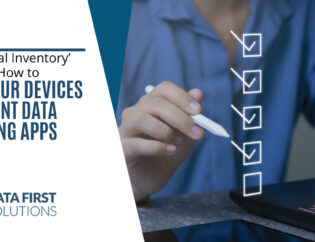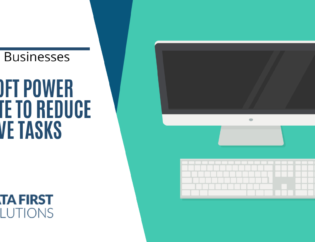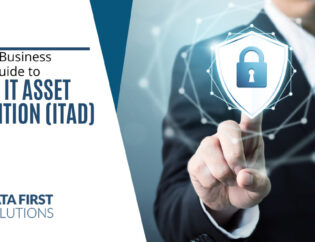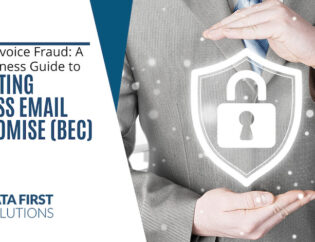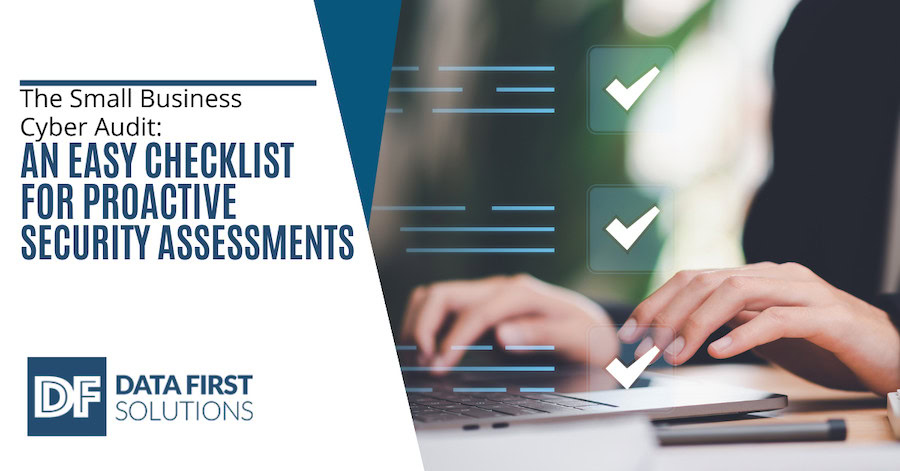
While they should be powerful enough to ward off even the most persistent attacks, cyber systems also need to be easy to manage. One way to determine the state of your cyberattack readiness is by performing an audit.
This doesn’t need to be overly complex. However, it does need to be thorough. This guide outlines an easy-to-follow approach for small businesses to assess their readiness. It will also offer a roadmap for how to improve cybersecurity measures. Reach out to Data First Solutions for more information.
Why You Need a Cyber Audit
Performing a review of your organization’s digital security protocols and policies is a great way to identify potential vulnerabilities. It also ensures proper compliance with security standards. When done with regularity, it can reduce the possibility of incidents and allow your business to respond appropriately to threats.
A Checklist for Small Businesses
The following checklist can be used by small businesses to provide an actionable plan. No technical background is necessary to use the list.
Asset Inventory and Access Management
One of the biggest parts of this plan is to accurately note any and all technology assets. It provides an accurate accounting of all devices and users.
- Do you have an accurate inventory of all devices, software, and systems?
- Are all company-owned devices secure and monitored?
- Have any former users or outdated hardware been removed?
- Do all user accounts have strong, unique passwords?
- Is multi-factor authentication (MFA) enabled?
Data Protection and Backup Strategy
One of the critical components of cybersecurity is the protection of any sensitive data. Use the following questions to determine what strategies are needed.
- Where is sensitive data stored?
- Is your data encrypted?
- How often are backups completed?
- Where are your backups stored? (offsite or in the cloud)
Network Security
The computer network provides the infrastructure necessary for you to conduct business. However, it is also a gateway to the heart of your digital landscape.
- Do you have a firewall installed?
- Is your Wi-Fi network separated for guests and employees?
- Are antivirus and anti-malware solutions installed and updated?
- How often are software updates applied?
Communication Security
Email communications have become the primary method by which fraud and phishing scams are carried out.
- Are spam filters and phishing tools in place?
- Can employees recognize suspicious emails and links?
- Is email encryption used?
Employee Training
Regardless of how robust your security is, a single click by one user can bring it all crashing down. Users remain the weakest link in the security chain.
- Have all employees completed cybersecurity training?
- Is there a clear reporting process for potential security incidents?
- Are cybersecurity policies part of the onboarding and offboarding process?
- Are employees encouraged to use password managers?
Incident Response Measures
While developing prevention measures is important, so is developing the processes to deal with incidents.
- Is there a documented Incident Response Plan (IRP)?
- Is the plan tested?
- Are roles clearly defined?
- Do you have a Business Continuity Plan (BCP)?
What Happens After the Audit?
The audit is just the beginning. It is the first step in a detailed process. Once it’s completed, it’s important to continue with the following:
- Document all findings
- Prioritize vulnerabilities
- Develop an action plan
- Schedule follow-up assessments
- Monitor progress
Professional Support Is Available
This checklist is by no means exhaustive. It is intended to serve as a do-it-yourself checklist, providing a starting point. For a more thorough assessment, it is important to seek professional help. Professionals can perform technical assessments on cybersecurity for small businesses. Reach out to Data First Solutions for more information.
While it is critical to perform the audit, small businesses should also consider purchasing cyber liability insurance to cover any financial losses attributed to a cyber threat incident. While this is an option, most companies need to know baseline security measures.
Cyber Considerations
Small businesses have a lot to consider when thinking about their digital landscape. They have to be proactive in their stance and perform and plan audits. This helps to identify weaknesses and allows businesses to better equip themselves to face cyber threats.
Cybersecurity is one of the most important aspects of small business operations. It’s an ongoing process, not something to be considered more than once. It should be something continually monitored. The more often your business reflects on these aspects, the more resilient your business becomes.
Reach out to Data First Solutions for more information about cybersecurity audits today.
LinkedIn meta description: Need expert IT support or cybersecurity solutions? Reach out to Data First Solutions today. Whether you have questions about our managed IT services, cybersecurity, or disaster recovery, our team is here to help.
